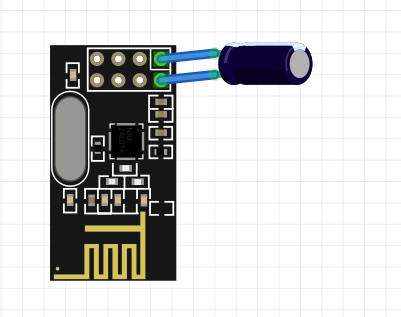I've been trying on and off to try and get my nrf24l01's working for some time and they never seem to work. Right now I'm just trying to turn a led on and off over the radio and it isn't working.
Here's the code for the transmitter
#include <SPI.h>
#include <nRF24L01.h>
#include <RF24.h>
#define button 5
RF24 radio(7, 8); // CE, CSN
const byte address[6] = "00001";
boolean buttonState = 0;
void setup() {
pinMode(5, INPUT_PULLUP);
radio.begin();
radio.openWritingPipe(address);
radio.setPALevel(RF24_PA_MIN);
radio.stopListening();
}
void loop() {
buttonState = digitalRead(button);
radio.write(&buttonState, sizeof(buttonState));
}
And here's the code for the receiver
#include <SPI.h>
#include <nRF24L01.h>
#include <RF24.h>
int led = 2;
RF24 radio(7, 8); // CE, CSN
boolean buttonState = 0;
const byte address[6] = "00001";
void setup() {
Serial.begin(9600);
radio.begin();
radio.openReadingPipe(0, address);
radio.setPALevel(RF24_PA_MIN);
radio.startListening();
}
void loop() {
radio.startListening();
while (!radio.available());
radio.read(&buttonState, sizeof(buttonState));
if (buttonState == HIGH)
{
digitalWrite(led, HIGH);
}
else
{
digitalWrite(led, LOW);
}
}
I have the voltage regulator which steps the 5v arduino to 3.3 to the chip so I don't think not having a capacitor (what others recommended) is a problem. I have both radio chips hooked up to arduino nanos.
For the transmitter and receiver I have CE=7,CSN=8, SCK=13, MO=11, and MI=12
I also know that my led is working and the code for my button is working. Is there a problem with my code or is there a chance that my chips are broken even if im using a voltage regulator

